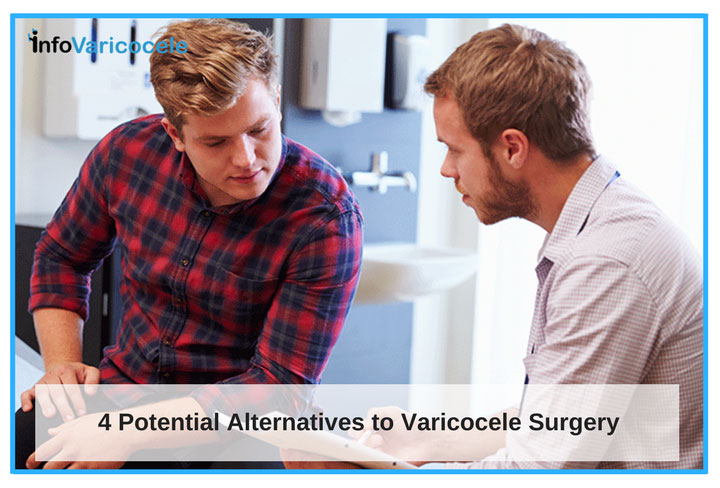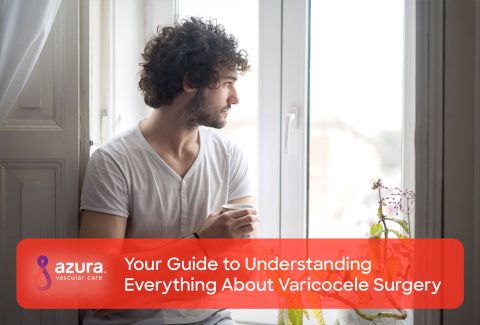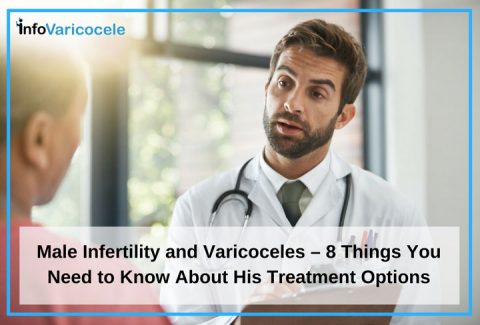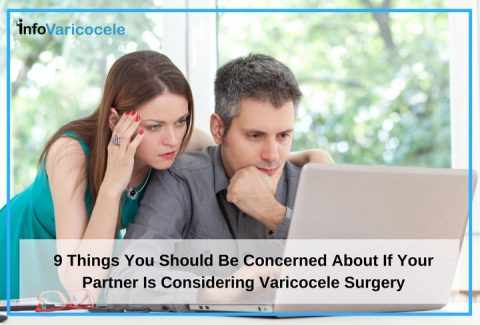
It can be scary when you don’t know exactly what is wrong with you. All you know is you feel pain and something doesn’t seem right. Maybe you and your partner are facing infertility questions and her medical tests show she is fertile. Perhaps a decision to go to a urologist has relieved your worst fears when an ultrasound indicated you don’t have something serious, like testicular cancer. But, if you’ve just been diagnosed with varicocele, you are likely to have questions about your varicocele infertility treatment options. Fortunately, modern medicine now offers several courses of varicocele treatment to choose from. And, not all of them are surgical.
What is Varicocele Surgery?
At present, there are three types of surgery to alleviate the condition known as varicocele. All three surgical approaches — open surgery, microsurgery, and laparoscopic surgery —involve incisions and an extended recovery time. The invasiveness of surgery is prompting people to look for other alternatives. Here is a brief description of the 3 surgical approaches:
- Open surgery – involves an incision in the groin, scrotum, or upper abdomen. A surgeon ligates, or ties off the dysfunctional veins so they can no longer carry blood.[i]
- Microsurgical – similar to open surgery in that it also involves an incision, but is more complex in that it is done using a microscope to more precisely identify and locate the affected veins. There is also a reduced risk of reoccurrence when compared to open surgery.
- Laparoscopic – is the least preferred treatment option due to the need for general anesthesia, which increases risk. It involves a small incision in the groin, and the use of specialized robotic instruments to see inside the body and make repairs to the affected veins.
RELATED: What is a Varicocelectomy?
Disadvantages of Varicocele Surgery
There are several reasons why men may want to avoid surgery to treat their varicocele, including:
- Hospitalization
- A risk of infection
- A longer recovery period when compared to a minimally invasive
- procedure
A 4-week recovery period to return to sexual activities - Potential for varicocele reoccurrence
- Scarring
RELATED: Is It Really Necessary to Have Varicocele Surgery to Help with My Infertility?
Natural Treatments and Minimally Invasive Alternatives to Varicocele Surgery
Varicocele natural treatment and minimally invasive options are available for those hoping to avoid surgery. Before deciding on the best course of treatment, be sure to consult your doctor. Here are some suggested natural treatment approaches that you may want to consider and discuss with your doctor before making a decision on the best course of treatment for you.
1. Change Your Diet
There is increasing evidence that foods containing white flour, sugar, and processed foods may be contributing to many undesirable health consequences including the formation of varicoceles. Increasing your intake of high-fiber and foods such as fresh vegetables, fruits, and whole grains into your diet may be helpful since these flavonoid-rich foods are known to enhance the structural integrity of blood vessels. Naturalists claim a lack of fiber often results in straining during bowel movements. This straining contributes to varicose veins, so remedying a bowel issue may presumably help with scrotal vein issues.[ii]
Although healthy eating habits are not going to hurt you, this approach involves lifetime dietary changes that require commitment.
2. Herbal Medicine
Those subscribing to homeopathic treatment and remedies claim that a combination of herbs can relieve symptoms stemming from varicose veins. It is believed by homeopathic therapists that there are several herbs that may be helpful.[iii]
Using herbal therapy requires a consult with a naturopath or holistic health practitioner before beginning a regimen. Taking herbs arbitrarily or self-prescribing can be dangerous because certain herbs, when mixed together, can be toxic, or result in undesired side effects when combined with some prescription medications.
3. Kegel Exercises
Some believe that Kegel exercises can help in alleviating the symptoms of varicocele. These are easy-to-do pelvic exercises that, when done consistently, can improve and restore muscle tone and blood flow. They are thought to relieve issues like incontinence and varicoceles.
While these exercises only take five minutes, you would need to do them several times daily to see any potential benefits.[iv]
4. Varicocele Embolization
This course of treatment, percutaneous endovascular embolization, or Varicocele Embolization, involves a small nick to the skin, typically in the groin or neck. An interventional radiologist inserts a small catheter through this nick and advances it into the dysfunctional veins.[v] Once the catheter is in the desired vein, it is used to insert small metal coils into the vein. In some cases a sclerosant (an injectable irritant that contributes to the closing off of the vein) is used in conjunction with the coils and contributes to blocking of the blood flow through the selected vein.
RELATED: Embolization is often a viable alternative to surgery.
The advantages of varicocele embolization include:
- Outpatient procedure
- No general anesthesia, typically done with mild sedation
- 1 – 2 day recovery period
- 2-week recovery period before return to sexual activities
- 90 percent long-term success rate[vi]
- Potentially improved pregnancy rates
- It is considered the best alternative to those with a reoccurrence[vii]
- Minimal risk of infection
- No scarring
The downside of varicocele embolization include:
- Not as time tested as other procedures
- Post procedural pain
- Possibility of an allergic reactions to the contrast solution
- Risk of embolization coil migration
Men suffering from varicocele do not have to live with the condition. Whether you are considering treatment to relieve pain and discomfort or to improve chances of fertility, this is a minimally invasive treatment that can provide long-term effectiveness. It’s best to do your own research by reading more about “What is Varicocele Embolization?” Finally, speak with your doctor before making a decision about which treatment is best for you.
Sources:
[i] http://www.mayoclinic.org/diseases-conditions/varicocele/basics/treatment/con-20024164
[ii] http://www.healthcommunities.com/varicocele/alternative-medicine/naturopathic-treatments-for-varicocele.shtml
[iii] http://www.healthcommunities.com/varicocele/alternative-medicine/naturopathic-treatments-for-varicocele.shtml
[iv] http://www.healthcommunities.com/varicocele/alternative-medicine/naturopathic-treatments-for-varicocele.shtml
[v] http://www.mayoclinic.org/diseases-conditions/varicocele/basics/treatment/con-20024164
[vi] http://www.radiologyinfo.org/en/info.cfm?pg=Varicocele
[vii] http://m.acr.sagepub.com/content/56/1/63


